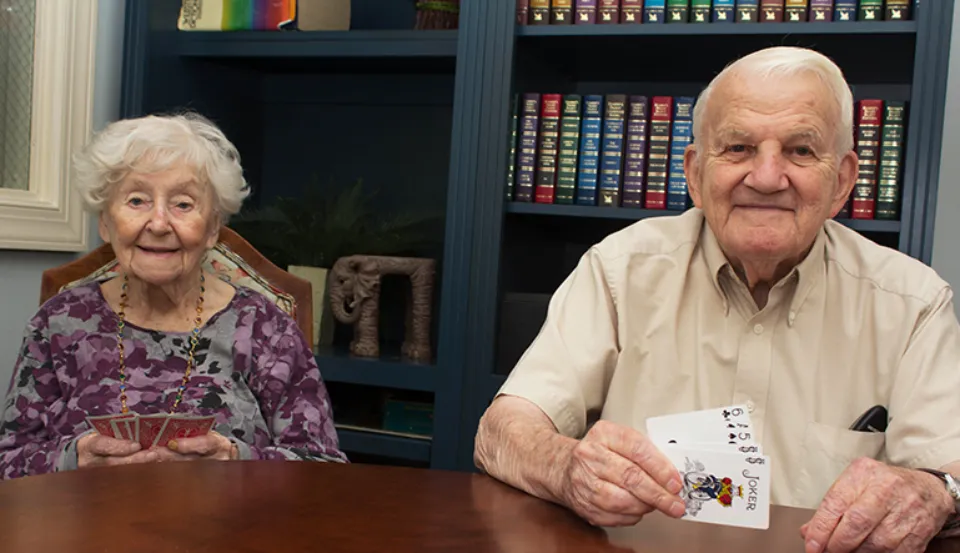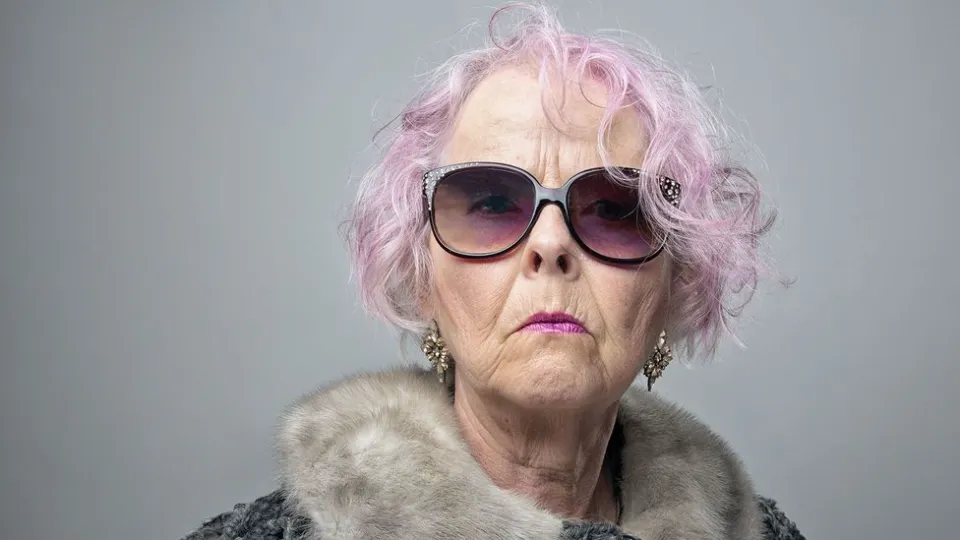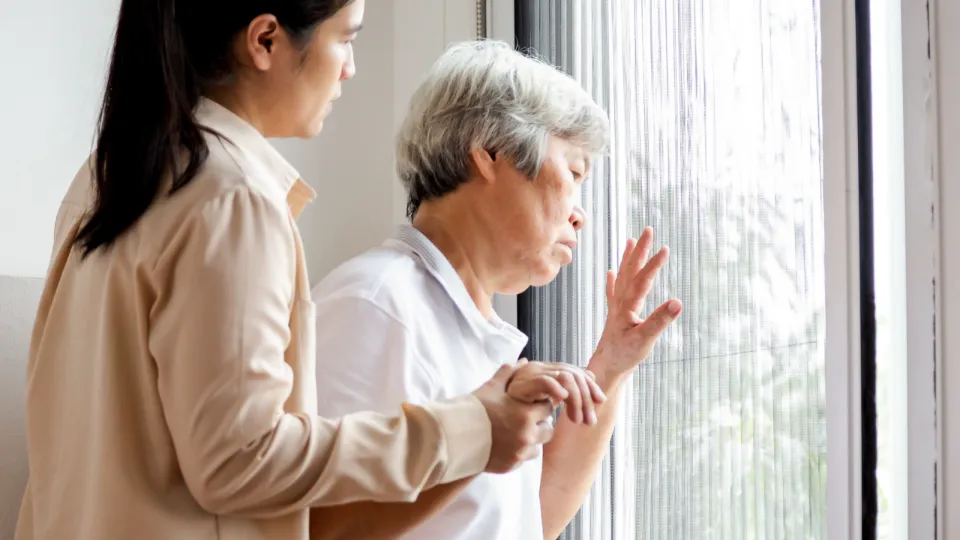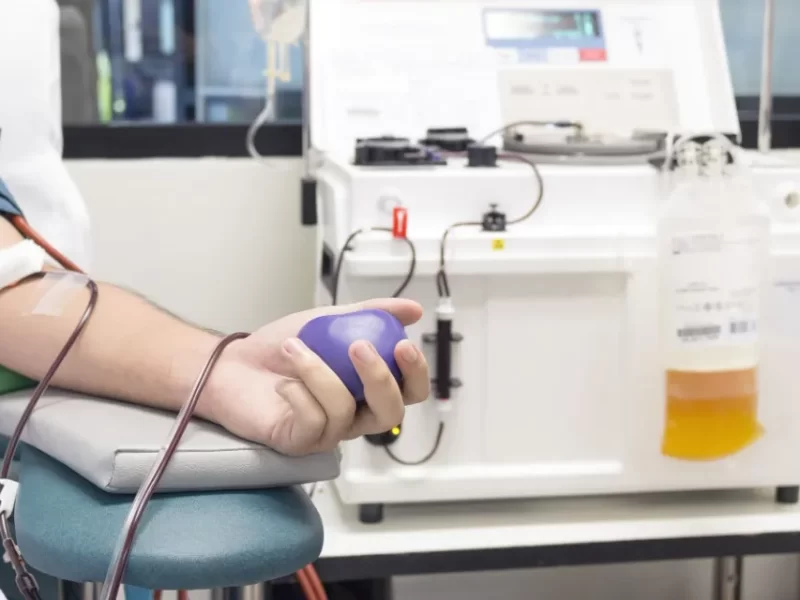Aging adults frequently experience personality changes. It’s common for some of your beliefs, values, or routines to change as you move into a new phase of life. It’s possible that your lifestyle has changed over the past ten years, and as a result, your way of expressing yourself.
You can decide whether or not you should be worried about your or your loved one’s behavior by understanding why personality changes with age. Here’s everything you need to know about personality changes with age:
What Causes Personality Changes in the Elderly?
A natural part of aging is the occurrence of personality changes. A sudden change in personality, however, might be a sign of something more serious. A physical, mental, or cognitive health problem could be the cause of how you or a family member is acting completely different than usual. The following are some of the most common causes of personality changes in seniors:

Cognitive Decline
A slight decline in cognitive function shouldn’t result in an abrupt or dramatic personality change. But your behavior could be impacted by dementia and other cognitive disorders. Unfortunately, the majority of dementia patients go through significant personality changes over the course of the illness, which can be difficult for loved ones to observe. Adults with dementia frequently exhibit anxiety, agitation, mood swings, aggression, and a lack of energy, but the condition can also lead to other personality changes.
Depression
The way you perceive yourself and the world around you can be significantly affected by depression and other mental health disorders. When you’re having mental health issues, you might become withdrawn, agitated, angry, or quiet. This influences your internal feelings, but it can also influence how you act around other people. When you’re feeling so depressed, it’s very challenging to interact with your friends and family.
Uti
In particular for older women, a UTI is a surprising but fairly frequent cause of personality changes. Untreated UTIs can cause confusion, forgetfulness, mood swings, and agitation. Sometimes, the signs of a UTI can be mistaken for dementia signs. However, because this health issue is curable, once you receive medical attention, the symptoms should go away.
Hearing and Vision Problems
Common, but frequently disregarded, causes of behavior changes include hearing and vision issues. Even though you or a loved one may not actually experience a personality change in this situation, the loss of hearing or vision makes it challenging to interact with the outside world. It might be time for an elderly relative to get a hearing or vision test if you’ve noticed that they’ve become more withdrawn or quiet without any apparent cause. Fortunately, hearing aids, glasses, and other adaptive devices can frequently be used to treat these issues.
Stroke
One of the most serious medical occurrences you can experience is a stroke, which can have a long-lasting impact on your personality and behavior. Your neurology has a significant impact on your personality, and strokes can sometimes affect the parts of the brain that are involved in judgment, cognition, and communication. You should seek medical attention right away if you think you might have had a stroke or that of an elderly loved one.
Medication Side Effects
Elderly people may use more medications than do younger people, and some drugs can alter personality. The two events might be related if the personality change happened soon after starting a treatment for a medical condition. Your doctor or the doctor of a loved one may be able to provide advice and insight into handling personality changes brought on by medication. Changing the dosage or the treatment plan can occasionally help the patient return to normal.
Are Personality Changes Common in the Elderly?
Although personality changes are common throughout the lifespan, they are typically a sign of a more serious issue when they occur in older adults. Below are common personality changes that are a normal part of the aging process along with information about when to schedule a doctor’s appointment should these personality changes go beyond a normal threshold:

- Forgetfulness: While memory lapses are common and should be brief in older people, it is common for them. The caregiver should be alerted that it’s time for the elder to be evaluated if they experience more severe memory loss (such as forgetting someone they’ve known for years).
- Risky Behaviors: Seniors have a right to enjoy their golden years, but risk-taking behaviors that involve an imbalance of potential costs and rewards may be cause for concern. Seniors who start gambling, acting promiscuously, or using illegal substances, for instance, may actually be displaying symptoms of dementia or depression.
- Crankiness: Elderly populations may become irritable due to chronic pain, stress, and loneliness, especially during times of transition. However, elderly people who become irrationally cruel or aggressive may be dealing with more serious conditions such as physical pain, depression, or dementia that require a medical evaluation.
- Sadness: It’s typical for older people to experience sadness frequently, especially after losing a spouse or significant other because they have frequently suffered great loss. A complicated grief response, however, may be indicated by sadness that persists for several weeks or months. To assist the person in leading a normal life again, therapy or medication may be required.
Normal Personality Change Vs. Memory Impairment
So which personality changes are typical and which indicate cognitive decline? Each case is unique, but these are some of the common changes you might notice in your loved one:
- confusion or discomfort in circumstances we know well. Seniors with Alzheimer’s disease or other types of dementia may become overstimulated by noise, conversation, crowds, and activity. Be aware that it could be an indication of something more serious if you observe them acting tense or feeling a little lost in familiar surroundings.
- A rise in agitation or rude outbursts. The frontal lobe, one of the main areas of the brain affected by Alzheimer’s disease, is largely responsible for impulse control. Consider whether your loved one’s behavior is being brought on by their life’s circumstances or something that is affecting their health if they are acting rudely, angrily, or upset in an out-of-character way.
- loss of drive or interest. Even for tasks they have performed for years, those with frontal lobe deficits may find it more difficult to plan and carry out. Increased difficulty in previously enjoyed activities can cause interest to wane.
The most important thing to keep in mind is to trust your worry if it pertains to a loved one. When it comes to their health and general well-being, it is preferable to be cautious. Even though you can’t make them get help, your worries might be what motivates them to look for more details. Talk to your loved one’s doctor or another healthcare professional as soon as you suspect something is wrong and continue the conversation there.
How to Handle Personality Changes in the Elderly?
Seniors may experience behavioral changes, which can be a difficult task that requires careful planning and thoughtful consideration. The most important thing to keep in mind is that individual behavior is very rarely personal, and sudden shifts in a patient’s mood from apparent happiness to anger are unlikely to be a result of your error.
Below listed are some tips you can follow to deal with personality changes in a senior:
- Encourage the seniors to engage in interesting or enjoyable activities if they appear apathetic. Encourage them to pursue their interests.
- The right environment is important for seniors who struggle with anxiety or exhibit compulsive behaviors linked to their condition. Maintain a calm and orderly environment for them.
- It can be challenging to deal with a sudden decline in insight, but it can be frequently maintained by expressing your opinions regarding the senior’s behavior. When someone behaves properly and speaks, say hello and let them know how you feel.
- The key is to make sure that both you and the senior are safe if they exhibit aggressive behavior. Call for help if elderly people are in danger.
- An infection, pain, or a medication reaction can all cause sudden behavioral changes. Before drawing any conclusions, have a doctor evaluate you because dementia is not always the case.
- Medicines do not always provide a solution to this issue. According to one study, using the wrong medications and therapies can exacerbate existing problems and have negative side effects. Be aware.
- Look for the source of the issue. A trigger or an event that occurred just before the head?
- They act in an obnoxious and frustrating manner, but you also need to be more forgiving. Be as patient and calm as you can. You, therefore, need to take breaks.
- Speak with the senior patient’s caregiver or physician. Think about any assistance that could be given to seniors who are changing their behavior.
- Watch your senior citizens carefully. Check them frequently if you want to prevent pain, thirst, hunger, fullness, constipation, rashes, infections, and fatigue. preserve the same temperature.
Final Thoughts
The aging process may be accompanied by subtle personality changes. You probably don’t need to be concerned if you’re still feeling good. When a character changes affect your quality of life or result in risky or harmful behavior, they are alarming. Additionally, you should be concerned if you’ve seen a sudden, significant change in personality or behavior that you can’t explain, as this could be a sign of a serious health issue.



